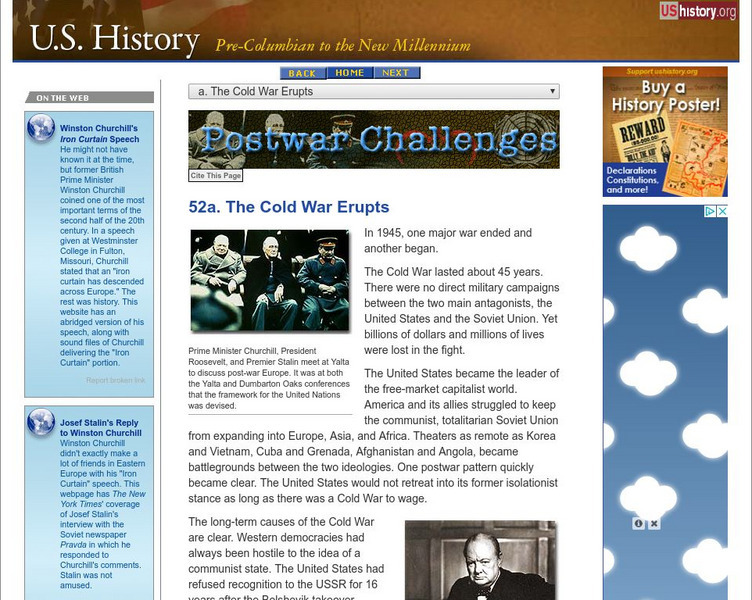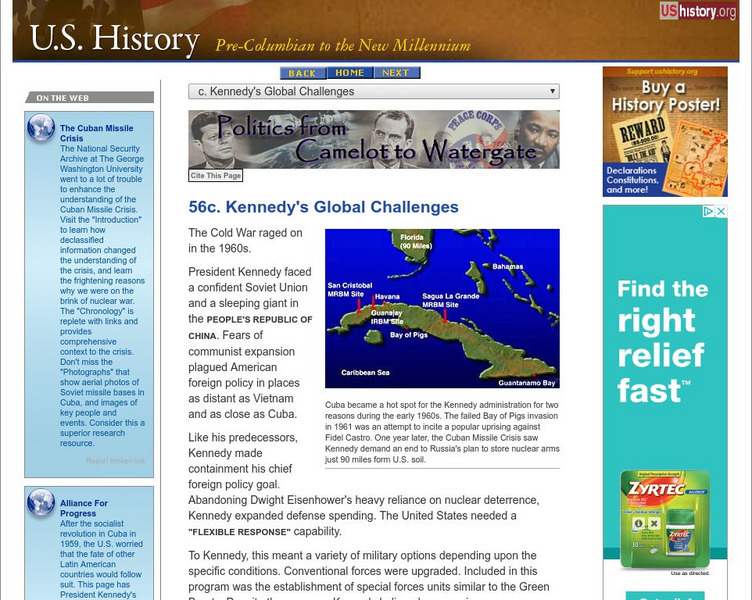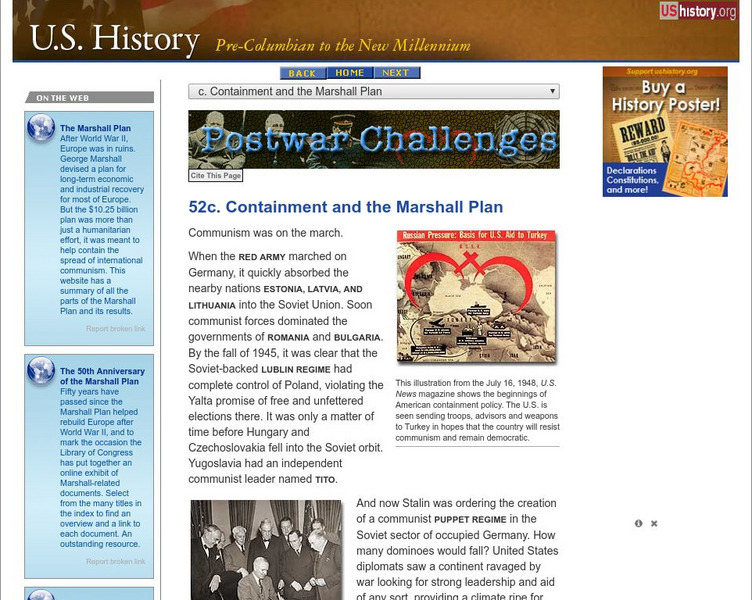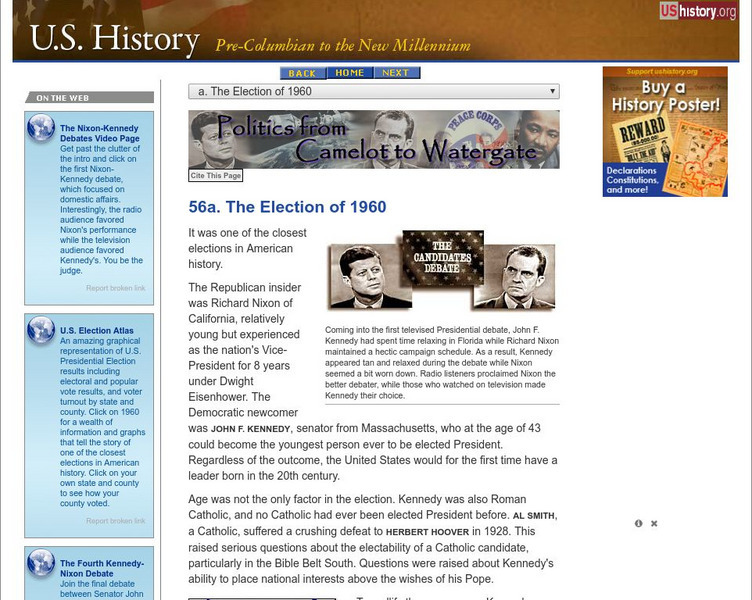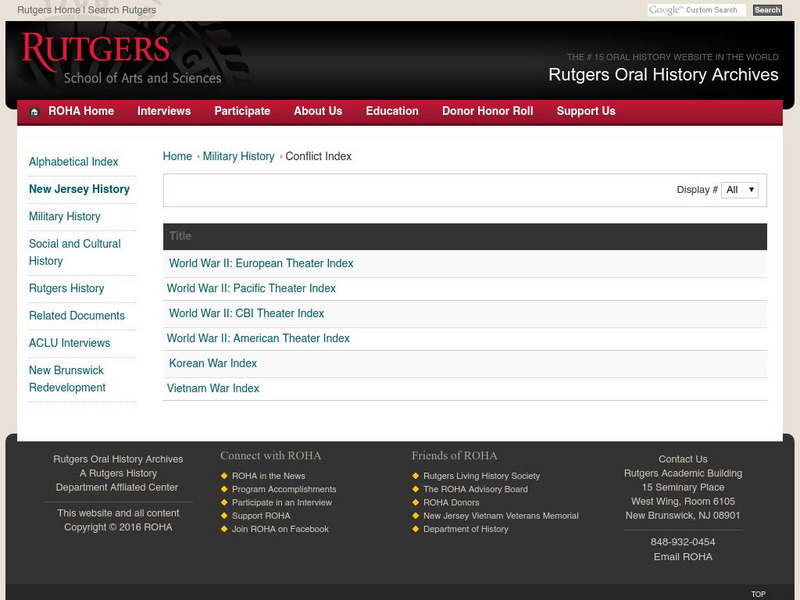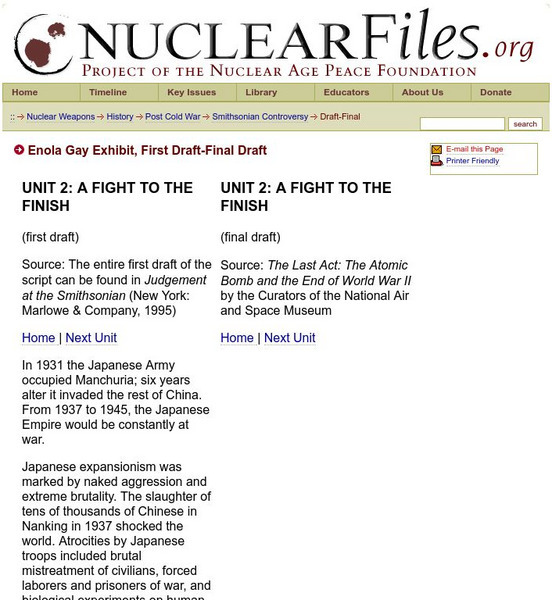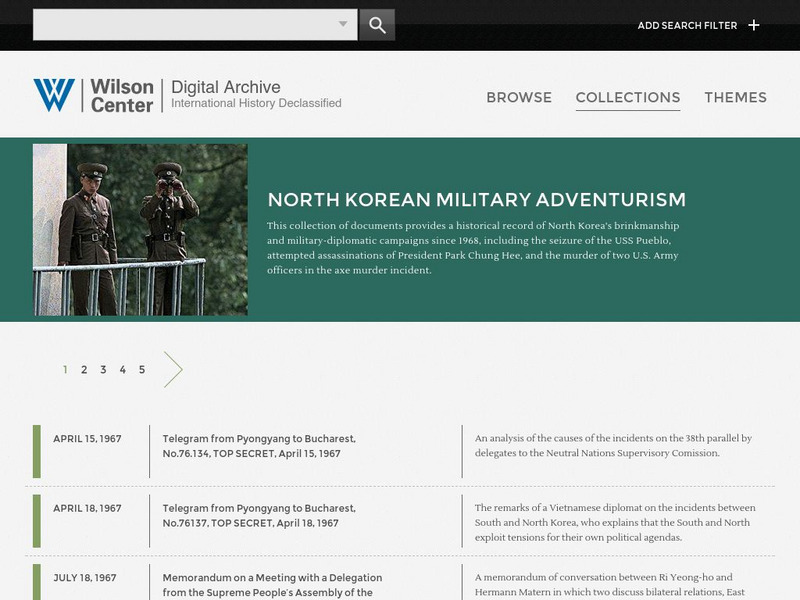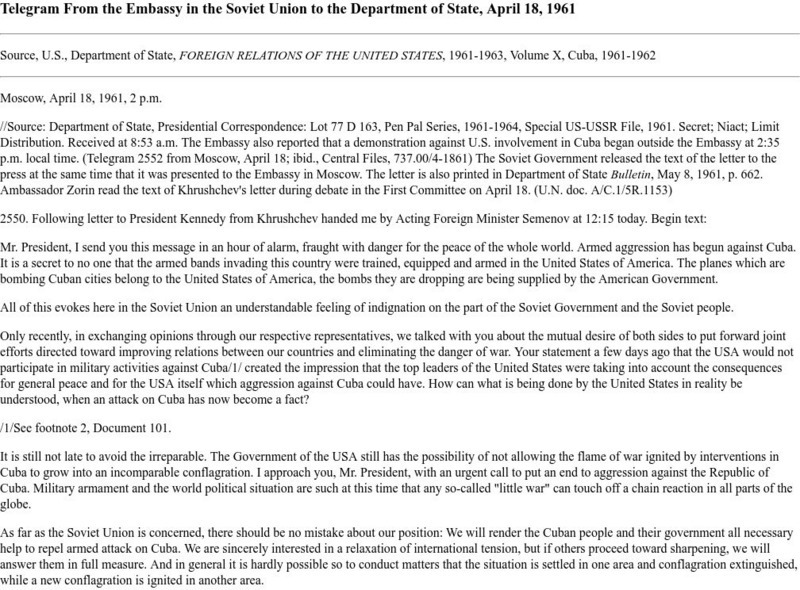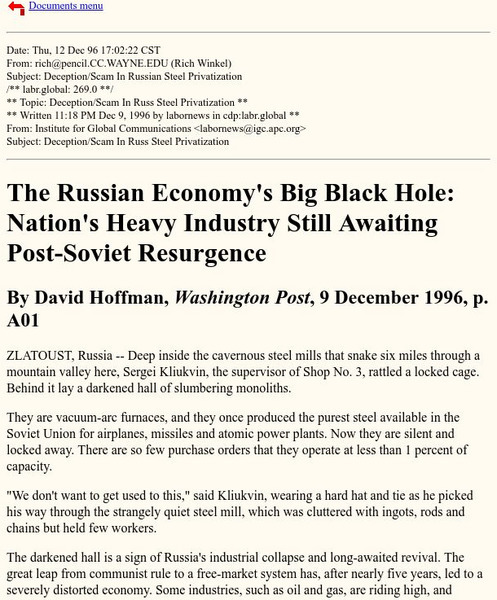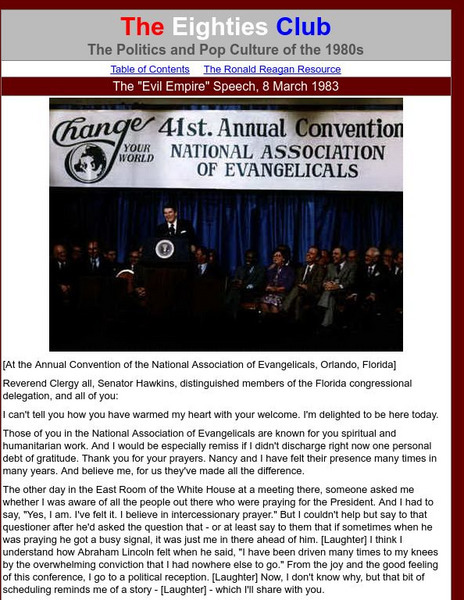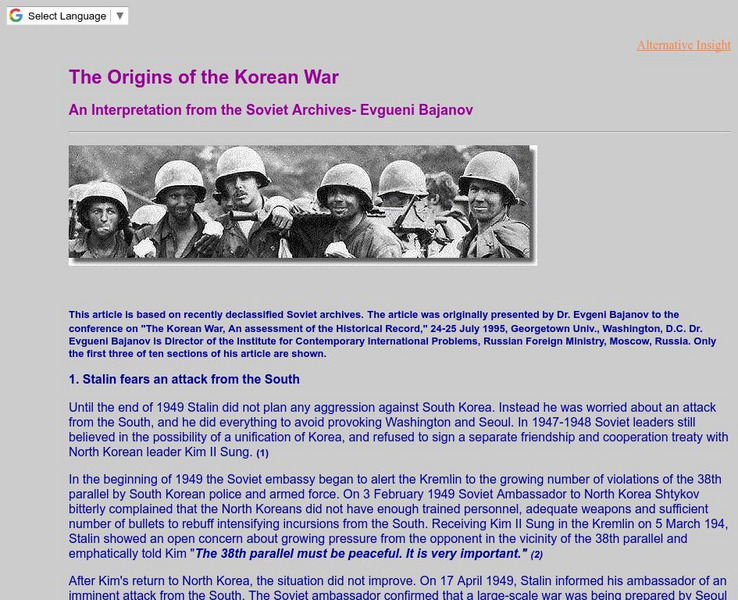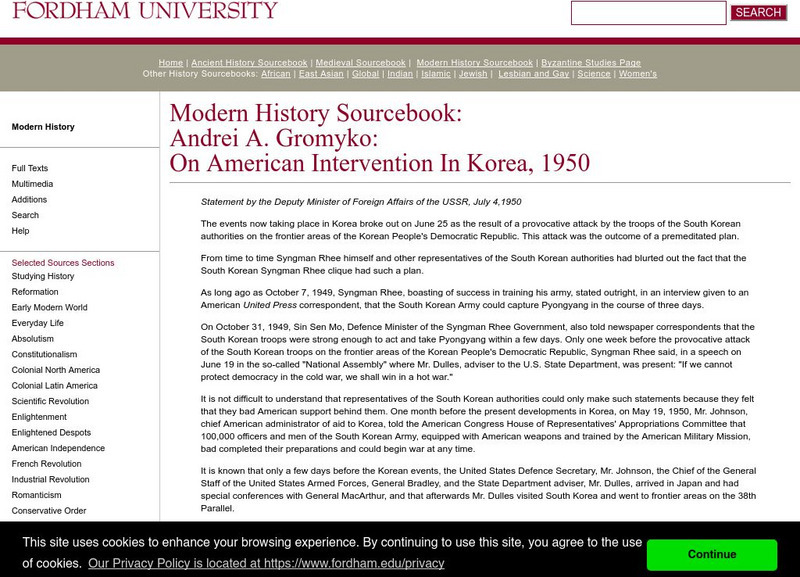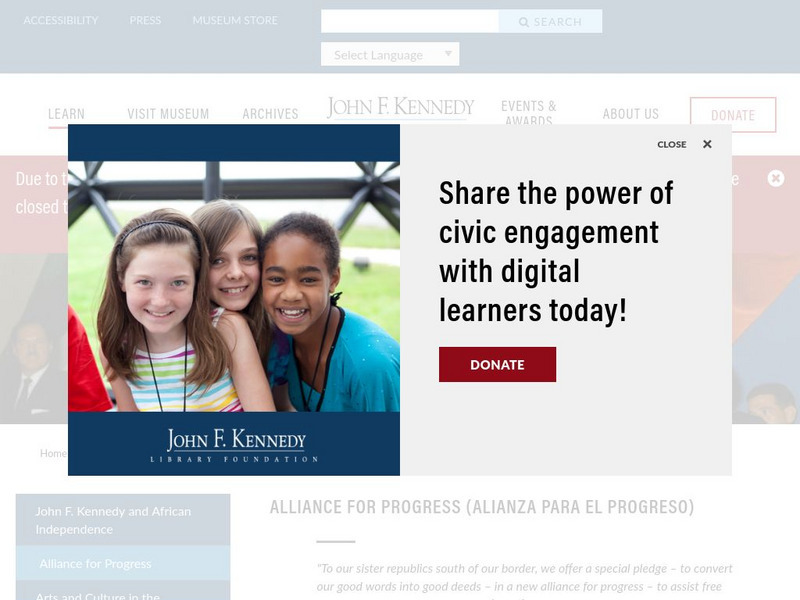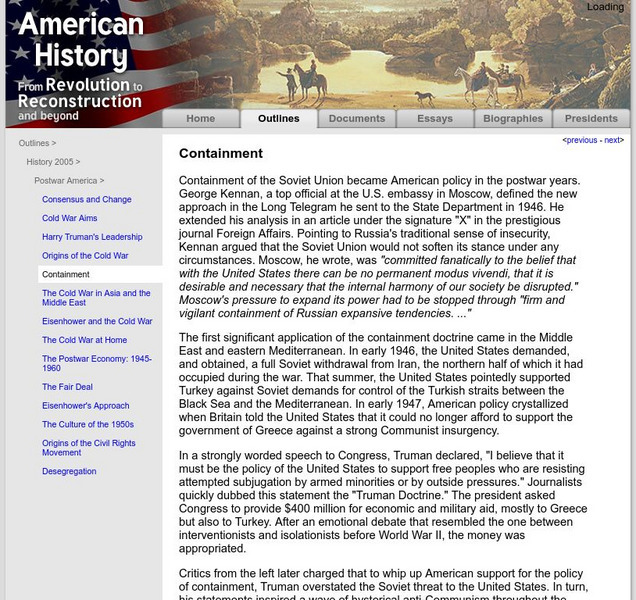Hi, what do you want to do?
Independence Hall Association
U.s. History: The Cold War Erupts
World War II ended in 1945 and the Cold War began immediately. Read about the mistrust Western Europe and the United States felt towards the Soviet Union and Joseph Stalin. Learn how the Soviets expanded their realm of influence and...
Independence Hall Association
U.s. History: The End of the Cold War
Read about the surprising and swift collapse of the Soviet Union and its satellite countries beginning with Poland in 1989. Watch a map which shows the change from a single country, USSR, into many independent countries, and find out...
Independence Hall Association
U.s. History: Kennedy's Global Challenge
The Cold War was still being waged during John Kennedy's administration. Read about the challenges he faced in Europe, Latin America, and, most ominously, in Cuba.
Independence Hall Association
U.s. History: Containment and the Marshall Plan
Read about President Truman's two-pronged foreign policy for Europe. Find out about his containment policy and the Truman Doctrine, which was manifested in the Marshall Plan.
Independence Hall Association
U.s. History: The Election of 1960
Read about the campaign and election of 1960 in which the Democratic candidate, Senator John F. Kennedy, ran against the Repbulican candidate, Vice-President Richard M. Nixon. Find out about the issues, the famous debates, and Kennedy's...
Rutgers University
Rutgers Oral History Archive
This archive records the personal experiences of the American men and women who served on the homefront and overseas during World War II, the Korean War, the Vietnam War, and the Cold War. Also offers resources on the men and women who...
Other
Nearpod: The Vietnam War: Introduction to the Causes
In this instructional activity about the Vietnam War, young scholars will understand the motivations behind the United States joining the conflict in Vietnam. This instructional activity will also discuss the role of the Cold War and...
Other
Nfa: A Fight to the Finish; u.s. And Japan
These scripts (the first of two drafts) describe the events in World War II in the Pacific Theater.
Digital History
Digital History: Into the Quagmire
Vietnam is one of the longest wars fought, spanning multiple decades and U.S. presidencies. In this article, students will learn about France's defeat at and withdrawal after Dien Bien Phu, the Geneva Accords, and the policies of the...
Independence Hall Association
U.s. History: The Korean War
A quick overview of the Korean War, its causes, outcome, and its role in the Cold War.
American-Israeli Cooperative Enterprise
Jewish Virtual Library: u.s. Rejects the Use of Force
This site is provided for by the Jewish Virtual Library. In a speech to the American people on October 31, 1956, Eisenhower denounces Israel's attack on Egypt.
Department of Defense
Do Dea: Ap Us History: Unit 9: Modern Times
This extensive learning module examines the extent to which conservatism successfully challenged liberal dominance in American culture and politics, and redefined economic policies and political behaviors. It looks at how the end of the...
Other
U.s. Centennial of Flight Commission: The Berlin Airlift
This site gives readers an in-depth look at the Berlin Airlift. Examines the dates the operation took place, amounts of materials airlifted into Eastern Germany, Soviet reactions, and details of the operation. A very informative resource...
A&E Television
History.com: What Caused the Korean War and Why Did the Us Get Involved?
The Korean War (1950-1953) was the first military action of the Cold War. It was sparked by the June 25, 1950 invasion of South Korea by 75,000 members of the North Korean People's Army. The line they crossed, the 38th parallel, was...
US Department of State
U.s. Department of State: The Yalta Conference, 1945
This site provides a concise summary of the decisions made by Winston Churchill, Franklin D. Roosevelt, and Joseph Stalin at the Yalta Conference in 1945.
Woodrow Wilson International Center for Scholars
Woodrow Wilson Center: Digital Archive: North Korean Military Adventurism
This collection of documents provides a historical record of North Korea's brinkmanship and military-diplomatic campaigns since 1968, including the seizure of the USS Pueblo, attempted assassinations of President Park Chung Hee, and the...
Other
Limited Test Ban Treaty: Analysis
This essay describes the negotiations involved in passing the 1963 Limited Test Ban Treaty and its impact on U.S.-Soviet general disarmament.
Mount Holyoke College
Effect on u.s. u.s.s.r. Relations From Bay of Pigs
This is a telegram from the Embassy in the Soviet Union to the Department of State. It provides a typical example demonstrating the cold war relations and tensions.
Hartford Web Publishing
World History Archives: David Hoffman: The Russian Economy's Big Black Hole
An article about one of Russia's steel mills that has, like many other industries in Russia, fallen on hard times in the new free-market economy.
Other
The "Evil Empire" Speech, 8 March 1983
The full text of President Ronald Reagan's "Evil Empire" speech delivered in Orlando, Florida, which stated U.S. policy vis-a-vis the Soviet Union during its last years.
Other
The Origins of the Korean War: From the Soviet Archives
Three conclusions brought on by newly unclassified documents from the Soviet archives. Offers new interpretations on the beginning of the Korean War, including Stalin's opposition to war.
Internet History Sourcebooks Project
Fordham University: Modern History Sourcebook: On American Intervention in Korea, 1950
The Modern History Sourcebook offers a very interesting primary source that presents the Soviet position of the beginning of the Korean War. A great resource for comparing US/USSR claims about the origins of the Korean War.
John F. Kennedy Presidential Library & Museum
Jfk Presidential Library and Museum: Alliance for Progress
John F. Kennedy had lofty goals for improving U.S. relations with Latin America when he became president. Read about the aims of the Alliance for Progress and find out why it was a failure.
University of Groningen
American History: Outlines: Containment
Article outlines the U.S. policy to keep the spread of communism at bay and the Soviets in check.





